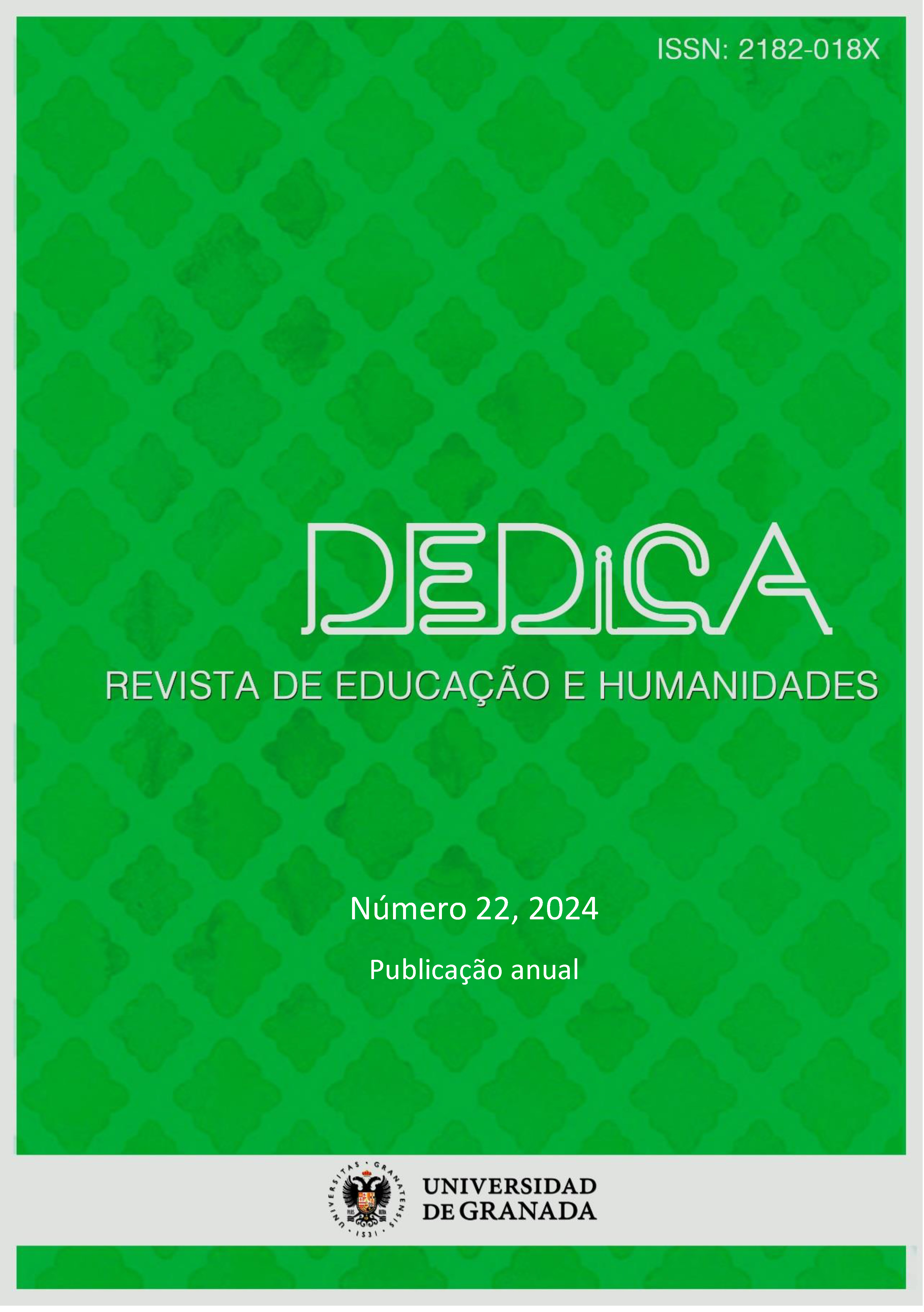Pedagogical Innovations: from Perceptions to Professional Practices
DOI:
https://doi.org/10.30827/dreh.22.2024.29189Abstract
It is common to associate the concepts of innovation with technological innovation. Although technological development is one of the key factors that promote innovation, this does not in itself guarantee pedagogical or scientific innovation, for example. Innovation, globally, is distinguished from the concept of reform (concept and practice interconnected with public policies and legislative references), attributed to the broadest level of educational policies. (De)Discourses are thus formed that reconstitute or subvert what is commonly called public opinion. Taking this scenario into account, it is essential to carry out formal studies and assessments on the way in which innovation is understood and practiced by educational actors, seeking to benefit from the clarity of facts and information to the detriment of possible intentional and influential distortions of and in opinion public.
We therefore advocate a pedagogical innovation as a significant and lasting change, with an impact on knowledge and pedagogical practices, presupposing several dimensions and a multifaceted and multidimensional character, as they take different forms, which allows us to verify their complexity.
In this sense, we assume pedagogical innovation as a set of systematic and deliberate devices and processes, through which the aim is to induce and promote changes in current pedagogical practices, guided by principles and values that legitimize them, providing results and processes of professional teaching practice and practices improvements that require purposeful monitoring to guarantee the quality of the educational service provided. This definition and this reality, as the specialist bibliography shows, implies a revolution in the thinking and action of the school and its agents, as well as the profession of teaching.
In this article we will focus on the presentation and discussion of the teaching perceptions of, approximately, more than a hundred primary and secondary education teachers who practice their profession in the north of Portugal, on the concept of pedagogical innovation and its benefits in the quality of the definition of actions, teaching strategies with consequences for learning actions.
The methodology used responds to a field study based on a questionnaire survey, from 30 items, considering a Likert-type scale where it was possible to contrast the professional and human situations of teachers in relation to educational changes, educational practices, the design of strategic teaching and learning actions and professional development.
The conclusions corroborated the initial hypothesis that pedagogical innovation is an opportunity for professional (and personal) development and that it results from the dilemmas and tensions of the teaching and learning process.
Downloads
References
Alves, M.; Jesus, P. (2019a). As Escolas como Centros de Vida e Aprendizagem. Faculdade de Educação e Psicologia. Universidade Católica Portuguesa. https://repositorio.ucp.pt/bitstream/10400.14/27465/1/9789895436415.pdf
Alves, M.; Jesus, P., (2019b). Inovação pedagógica, formação de professores e melhoria da escola (estudo de caso). Faculdade de Educação e Psicologia da Universidade Católica Portuguesa. https://repositorio.ucp.pt/bitstream/10400.14/31392/1/INOVAÇÃO%20PEDAGÓGICA%2C%20FORMAÇÃO%20DE%20PROFESSORES%20E....pdf
Azevedo, J.; Jesus, P. (2020). Inovação Educacional. O que é? Porquê? Onde? Como? Revista Portuguesa de Investigação Educacional, 20, 21-55.
https://revistas.ucp.pt/index.php/investigacaoeducacional/article/view/9683
Blanco, R.; Messina, G. (2000). Estado del arte sobre las innovaciones educativas en América Latina. Convenio Andrés Bello-UNESCO.
Cabral, I.; Alves, M., (Orgs.) (2021). Ensino Remoto de Emergência – Perspetivas Pedagógicas para a ação. Faculdade de Educação e Psicologia. Universidade Católica Portuguesa.
https://ciencia.ucp.pt/ws/portalfiles/portal/41940395/9789895309801.pdf
Crespo-Ramos, S.; Morón-Marchena, J. A.; Cobos-Sanchiz, D.; López-Meneses, E. (2022). Innovación educativa y redes sociales. Madrid (España): Narcea Ediciones.
Ferguson, R.; Coughlan, T.; Egelandsdal, K.; Gaved, M.; Herodotou, C.; Hillaire, G.; Jones, D.; Jowers, I.; Kukulska-Hulme, A.; McAndrew, P.; Misiejuk, K.; Ness, I. J.; Rienties, B.; Scanlon, E.; Sharples, M.; Wasson, B.; Weller, M.; Whitelock, D. (2019). Innovating Pedagogy 2019: Open University Innovation Report 7. Milton Keynes: The Open University.
Flores, M. A. (Org.) (2014). Profissionalismo e Liderança. Santo Tirso (Portugal): De Facto Editores.
Galvão, A (2020). Cover de processos e recursos de inovação pedagógica aplicados à aprendizagem. Livro de inovação pedagógica (pp. 11-87). Bragança (Portugal): Instituto Politécnico de Bragança.
Gonçalves, D.; Marques, H. (2022). Gestão e integração curricular: trajeto(s) para a relevância do ensino e aprendizagem. In VI Encontro International de Formação na Docência (INCTE): Livro de Atas, (pp.103-127). Bragança (Portugal): Instituto Politécnico de Bragança. http://hdl.handle.net/10198/25401
Gonçalves, D.; Nogueira, I. C.; Quinta e Costa, M.; Monteiro, I.; Silva, C. V.; Gonçalves, J. L. (Coords.) Inovação e (trans)formação educacional. E-book. Porto (Portugal): Repositório da Escola Superior de Educação Paula Frassinetti. http://repositorio.esepf.pt/handle/20.500.11796/3160
Marques, H.; Gonçalves, D. (2021). Do conceito de inovação pedagógica. Vivências Educacionais, 7(1), 36-45. http://hdl.handle.net/20.500.11796/3033
Pacheco, J. A. (1996). Currículo: teoria e práxis. Porto (Portugal): Porto Editora.
Nóvoa, A. (2009). Professores: imagens do futuro presente. Lisboa (Portugal): EDUCA.
Pink, D. (2017). A nova Inteligência. Gestão Plus Edições.
Rogers, E. M. (1995). Diffusion of innovations. New York (USA): Free Press.
Santos Guerra, M. (2018). Innovar o Morir. In Palmeirão, C.; Alves, J. (2018). Escola e Mudança. Construindo autonomias, flexibilidade e novas gramáticas de escolarização – os desafios essenciais (pp. 27-28). Lisboa (Portugal): Católica Editora.
Vincent-Lancrin, S.; Urgel, J.; Kar, S.; Jacotin, G. (2019). Measuring Innovation in Education 2019: What Has Changed in the Classroom? Educational Research and Innovation. OECD Publishing. https://www.oecd.org/publications/measuring-innovation-in-education-2019-9789264311671-en.htm
Vitón de Antonio, M. J.; Gonçalves, D. (2022). Desafíos societales y compromisos coeducativos: aprendizajes situados y retos pedagógicos transformadores. In Cavalcanti, P. A. (Org.) Educação: teorias, métodos e perspectivas (vol. VI, cap. 6, pp.53-65). Curitiba: Brasil): Artemis. https://sistema.editoraartemis.com.br/index.php/admin/api/ebookPDF/2879
Downloads
Published
How to Cite
Issue
Section
License
Copyright (c) 2024 Editorial Universidad de Granada

This work is licensed under a Creative Commons Attribution 4.0 International License.












